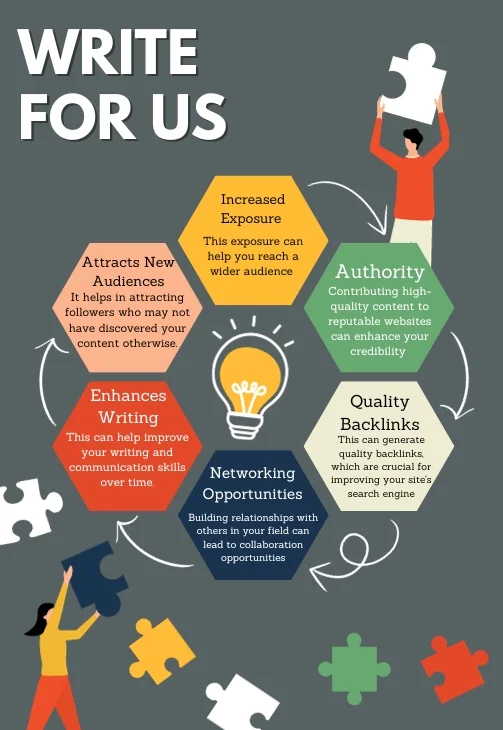As Technology Continues Wordle to advance, so does our understanding of the human brain. One area of interest that has gained significant attention in recent years is cognitive abilities and how they can be enhanced. Enter brain games – a collection of interactive activities designed to stimulate and challenge the mind. In this guide, brought to you by NYTimes, we will explore the science behind brain games, discover the top 10 games recommended by experts, and learn how to play and benefit from each game.
The Science Behind Brain Games and Cognitive Abilities
Before diving into the wordle today of brain games, it’s important to understand the science behind them and how they can improve cognitive abilities. Our brains are complex networks of interconnected neurons that are constantly adapting and changing. Through a process called neuroplasticity, the brain can form new connections and reorganize existing ones in response to new experiences and challenges.
Research has shown that engaging in cognitively stimulating activities, such as brain games, can enhance cognitive abilities. These games provide a workout for the brain, challenging various mental processes such as memory, https://www.digitalpointpro.com/ attention, problem-solving, and decision-making. By regularly engaging in brain games, individuals can improve their cognitive skills and potentially reduce the risk of cognitive decline associated with aging.
Top 10 Brain Games Recommended by NYTimes
Wordle that we understand the benefits of brain games, let’s explore the top 10 games recommended by NYTimes. These games have been carefully selected based on their effectiveness in improving cognitive abilities and their overall user experience.
Sudoku: This classic number puzzle game challenges your logical thinking and problem-solving skills. Fill in the grid with numbers so that each row, column, and 3×3 box contains all the digits from 1 to 9.
Lumosity: Lumosity offers a collection of brain training games that target memory, attention, flexibility, and problem-solving. With personalized training programs, Lumosity adapts to your skill level and tracks your progress over time.
Chess: https://themagzinehub.com/ Considered the ultimate mental workout, chess requires strategic thinking, foresight, and concentration. Playing chess regularly can improve memory, problem-solving, and critical thinking skills.
Elevate: Elevate is a brain training app that focuses on language and communication skills, math, and analytical thinking. With personalized daily workouts, Elevate helps you strengthen your cognitive abilities in a fun and engaging way.
Crosswords: Crossword puzzles challenge your vocabulary, memory, and pattern recognition skills. Solve clues to fill in the grid and expand your knowledge while exercising your brain.
Peak: Peak is a brain training app that offers a wide variety of games targeting memory, attention, problem-solving, and creativity. With daily workouts and in-depth performance tracking, Peak helps you reach your cognitive potential.
Jigsaw Puzzles: Jigsaw puzzles stimulate visual-spatial skills, attention to detail, https://themagzinehub.com/, and patience. Assembling pieces to create a larger image provides a satisfying challenge for the brain.
Brain Age: Developed by Nintendo, Brain Age offers a range of exercises designed to improve memory, attention, and cognitive flexibility. With its interactive interface and engaging activities, Brain Age makes brain training accessible to everyone.
Scrabble: Scrabble is a word game that challenges your vocabulary, spelling, and strategic thinking. By forming words on a crossword-style board, you can enhance your language skills while having fun.
Memory Games: Memory games, such as Simon Says or Memory Match, exercise your working memory and improve your ability to retain and recall information. These games are simple yet effective in boosting cognitive abilities.
How to Play and Benefit from Each Brain Game?
Now that we’ve explored the top 10 brain games, let’s understand how to play and benefit from each game.
Sudoku: Start by filling in the grid with numbers based on the given clues. Use logic and deduction to complete the puzzle. Regularly playing https://themagzinehub.com/ Sudoku can improve your logical thinking and problem-solving skills.
Lumosity: Create an account on the Lumosity website or download the app. Complete the initial assessment to determine your baseline cognitive abilities. Engage in daily workouts that target different cognitive skills. Monitor your progress and challenge yourself to improve.
Chess: Learn the rules of chess and practice regularly. Play against opponents of varying skill levels to challenge yourself. Analyze your games to identify areas for improvement. Chess can enhance memory, problem-solving, and critical thinking skills.
Elevate: Download the Elevate app and create an account. Complete the initial evaluation to assess your cognitive strengths and weaknesses. Engage in daily workouts that target specific skills. Track your progress and strive to improve your performance.
Crosswords: Solve crossword puzzles by filling in the grid with words that match the given clues. Start with easier puzzles and gradually progress to more challenging ones. Crosswords can improve your vocabulary, memory, and pattern recognition skills.
Peak: Download the Peak app and set up an account. Begin with a personalized workout based on your cognitive goals. Engage in daily exercises that challenge your memory, attention, problem-solving, and creativity. Track your progress and strive for improvement.
Jigsaw Puzzles: Start with smaller puzzles and gradually increase the number of pieces as you improve. Pay attention to the details and shapes of the puzzle pieces. Jigsaw puzzles can enhance your visual-spatial skills and attention to detail.
Wordle: The Latest Brain Game Sensation Featured in NYTimes
One brain game that has recently taken the world by storm is. Featured in NYTimes, is a word-guessing game that challenges your vocabulary and pattern recognition skills. Each round, you are presented with a five-letter target word, and you must guess words that fit the target’s pattern. The game provides feedback on which letters are correct and in the right position. The goal is to guess the target word in as few attempts as possible.
Wordle has gained popularity due to its simplicity and addictive nature. With each game lasting only a few minutes, it’s easy to get hooked and strive for better results. The game not only enhances your vocabulary but also trains your brain to recognize patterns and make educated guesses.
Wordle Strategies and Tips for Success
To Improve your skills and increase your chances of guessing the target word correctly, consider the following strategies and tips:
Start with Common Letters: Begin by guessing words that contain commonly used letters such as E, A, or T. These letters are more likely to be part of the target word and can provide valuable clues.
Pay Attention to Feedback: Take note of the feedback provided after each guess. The game will indicate which letters are correct and in the right position. Use this information to narrow down your possibilities for the next guess.
Eliminate Unlikely Letters: If a letter does not appear in the correct position or in the feedback, it is likely not part of the target word. Eliminate such letters from your future guesses to focus on more promising options.
Consider Word Length: Pay attention to the length of the target word and adjust your guesses accordingly. Longer words may contain less common letters, while shorter words may be more straightforward.
Use the Process of Elimination: As you make more guesses and receive feedback, use the process of elimination to narrow down the possibilities. Eliminate words that do not match the feedback and focus on potential matches.
By utilizing these strategies and practicing regularly, you can improve your Wordle skills and achieve better results in the game.
Other Popular Brain Games Worth Trying
While the top 10 brain games recommended by NYTimes offer a wide variety of cognitive challenges, there are also other popular brain games worth exploring. These games may not be featured in NYTimes, but they have gained a loyal following for their effectiveness in improving cognitive abilities.
Memory Match: The classic memory matching game challenges your working memory and concentration. Flip cards to find matching pairs and improve your ability to remember and recall information.
Trivia Quizzes: Test your general knowledge and trivia skills with online quizzes. Answer questions from various categories and expand your knowledge while exercising your brain.
Puzzle Games: Explore a range of puzzle games, such as Tetris or Bejeweled, that require quick thinking, spatial awareness, and problem-solving. These games provide a fun and challenging way to enhance cognitive abilities.
Math Games: Sharpen your math skills with games that involve calculations, problem-solving, and numerical reasoning. From Sudoku variations to math-based puzzles, there are plenty of options to choose from.
Pattern Recognition Games: Challenge your visual and cognitive abilities with games that require pattern recognition and matching. These games can improve your attention to detail and ability to identify similarities and differences.
Remember, the key to benefiting from brain games is to choose activities that challenge your cognitive abilities and engage in regular practice. By incorporating a variety of games into your routine, you can target different mental processes and maximize the benefits.
The Impact of Brain Games on Cognitive Health
Engaging in brain games can have a positive impact on cognitive health, regardless of age. Research has shown that regular mental exercise can improve memory, attention, problem-solving, and decision-making skills. By challenging the brain with stimulating activities, individuals can maintain and even enhance their cognitive abilities.
For older adults, brain games can be particularly beneficial in preserving cognitive function and reducing the risk of cognitive decline associated with aging. Studies have shown that cognitive Wordle training can lead to improvements in cognitive abilities and may even have long-term effects on brain health.
It’s important to note that while brain games can be beneficial, they should not be the sole focus of cognitive health. A well-rounded approach that includes physical exercise, Wordle a healthy diet, social engagement, and mental stimulation is crucial for maintaining optimal cognitive function.
Resources and Tools for Finding and Playing Brain Games
Finding and playing brain games is easier than ever, thanks to the abundance of resources and tools available online. Whether you prefer mobile apps, websites, or traditional board games, there are options to suit every preference and skill level.
Here are some resources and tools to help you find and play brain games:
App Stores: Both the Apple App Store and Google Play Store offer a wide range of brain training apps. Search for keywords such as “brain games,” “cognitive training,” or specific game names to discover new options.
Websites: Many websites offer free brain games that can be played directly in your web browser. Look for websites dedicated to cognitive training or search for specific games to find online versions.
Board Games: Traditional Wordle board games like Scrabble, Chess, and Sudoku can be found in most toy stores or online retailers. Gather friends or family members for a game night and enjoy the benefits of face-to-face interaction while challenging your cognitive abilities.
Social Media Groups: Join online communities or social media groups dedicated to brain games and cognitive training. These communities often share recommendations, tips, and strategies for specific games.
Brain Training Programs: Explore comprehensive brain training programs, such as Lumosity or Elevate, that offer a wide variety of games and personalized training plans. These programs typically require a subscription but provide a structured approach to cognitive improvement.
Remember to choose games that align with your interests and goals. Experiment with different options to find the games that challenge and engage you the most.
Conclusion: Start Boosting Your Cognitive Abilities with Brain Games Today
In conclusion, brain games offer a fun and effective way to boost your cognitive abilities. From Sudoku to Lumosity, there are countless options to choose from, each targeting different mental processes. By regularly engaging in brain games, you can improve your memory, attention, problem-solving, and decision-making skills.
Remember to choose games that challenge you and align with your interests. Practice regularly and monitor your progress to see the improvements in your cognitive abilities. But don’t forget that brain games are just one piece of the puzzle when it comes to cognitive health. A holistic approach that includes physical exercise, a healthy diet, social engagement, and mental stimulation is essential for optimal cognitive function.





